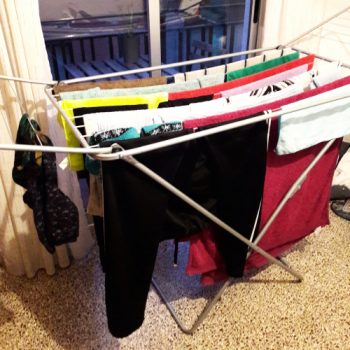
Top Tips for the Auxiliares Application Process
Dear Jessica,
If you’re planning to come to Spain to teach English, one of the simplest options for you is the Spanish government (Ministry of Education, Culture, and Sport)’s program which is called Auxiliares de conversación y cultura (Assistants of conversation and culture), often referred to simply as Auxiliares for short. If you’re curious about the what this program consists of and the pros of cons of working as a teaching assistant with Auxiliares check out the video below.
Once you’ve decided that auxiliares is indeed the option you want to go for there are some things you should keep in mind that seasoned auxiliares are well-aware of but first-timers often don’t realize. I personally knew nothing about this list the first time I applied for auxiliares and I therefore didn’t get notified of my acceptance (to a region that was not in my top 3) until July and instead accepted a position through the CIEE branch of the program (which is another option you might consider too, read more here).
While I myself chose to pay for CIEE’s Teach in Spain program I believe that if you are aware of these tips and tricks before the application period opens you’ll have a really good shot at getting accepted where you want to go and avoiding having to pay any program fees.
 Top Tips and Things to Know about the Application Process:
Top Tips and Things to Know about the Application Process:
1.) Apply EARLY!: And when I say ‘early’ I don’t mean within the first few weeks, I mean within the first few hours! Return auxiliares will have their materials ready for the (Spanish) midnight opening of the application, which is typically around the first week of January (stay up-to-date on this year’s date by bookmarking this website). This is especially important as the inscrita number (basically the reference number for your application) is one of the most important factors in determining placements.
Pro-Tip: While it’s a bit cheeky, I’ve known people to hit submit on their applications before even having the required documents to upload because you can edit your application later on and so they simply upload these documents afterwards in order to get the lowest inscrita number possible.
2.) Understand the way placements are assigned: Of the same token, be aware that there is a hierarchy of whose placements tend to be assigned first. Second-years have top priority and will often fill up many of the most sought-out locations (such as Madrid city center and Andalucía). After that, first and third-year applicants are placed in order of their inscrita number and so on. Applicants who are currently working through the Auxiliares program have their own sort of priority if they wish to stay at their same school(s) as these requests are generally granted unless the school specifically asks for a change of assistant (unlikely if the experience was mutually positive).
Pro-Tip: Essentially, if it’s your first time and you didn’t realize how important it was to get a low inscrita number I would not despair, just know that you’re unlikely to get one of your top 3 regional placements unless you elect a less popular destination. But that’s not a bad idea by any means! Check out our friend Nina’s post about why you should apply to teach in La Rioja if you’re wondering what the perks of a less sought-after region could be. Additionally, I’ve found that people who apply MUCH later (i.e. nearer the close date than the opening date) actually have good odds of a sought-after placement as the program has gone through enough applicants by that time that there are people already rejecting their placement and ‘the good ones’ start opening up again.
3.) Use this English-language guide: The Profex portal on which you need to create a profile in order to apply for Auxiliares is notoriously confusing and difficult to work with. On top of that, you may have never filled out an application in Spanish and so some of the language, formatting, etc may be new to you and this guide will be incredibly helpful. Sometimes it’s the little things like remembering that in Spain dates are written in the DD-MM-YY format instead of MM-DD-YY, which you might be used to in the US.
 4.) Ask a Spanish-speaking professor, employer, etc to write your letter of recommendation: I’m going to be completely honest with you, most Auxiliares believe that letters of rec are never actually even read but in the off-chance that they are, it could be beneficial to you to have all of your documents in Spanish. Again, the portal and guide indicate that English is allowed as well but if you can speak Spanish, it’s best to simply do it in the language of the program you are applying to.
4.) Ask a Spanish-speaking professor, employer, etc to write your letter of recommendation: I’m going to be completely honest with you, most Auxiliares believe that letters of rec are never actually even read but in the off-chance that they are, it could be beneficial to you to have all of your documents in Spanish. Again, the portal and guide indicate that English is allowed as well but if you can speak Spanish, it’s best to simply do it in the language of the program you are applying to.
5.) That said, do not stress about your credentials: The Auxiliares program has incredibly lax requirements. You do NOT need to have an education degree, teaching experience, or a TEFL certification. You do NOT need to speak Spanish. Of course, if you do have any of the aforementioned, be sure to highlight them in your resume and statement of purpose, but there is no need to invest a lot of money into getting a teaching certification or learning the language unless that is something of personal interest to you.
 6.) Surround yourself with a support group: Being an active member of a group like the “Auxiliares de Conversacion (insert school year)” on Facebook can be especially helpful as you have access to hundreds of others going through the same process as you or who have previous experience and can therefore answer your questions more accurately and honestly (and quickly!) than you can expect anywhere else. After you’ve been accepted and start the process of obtaining a visa this can be a great comfort as well as the experience can be trying and it helps to know others who have done it and are still rooting you on. Reaching out to us and setting up a private coaching session to address any personal doubts or concerns is a great option as well. If you’re curious about what that could look like, drop us a no-strings attached inquiry here.
6.) Surround yourself with a support group: Being an active member of a group like the “Auxiliares de Conversacion (insert school year)” on Facebook can be especially helpful as you have access to hundreds of others going through the same process as you or who have previous experience and can therefore answer your questions more accurately and honestly (and quickly!) than you can expect anywhere else. After you’ve been accepted and start the process of obtaining a visa this can be a great comfort as well as the experience can be trying and it helps to know others who have done it and are still rooting you on. Reaching out to us and setting up a private coaching session to address any personal doubts or concerns is a great option as well. If you’re curious about what that could look like, drop us a no-strings attached inquiry here.
And there you have it, I hope this quick and simple list of tips helps you through the Auxiliares application process with less stress. Are you an auxiliar with previous experience and more tips to add? Please share your wisdom in the comments below!
Sincerely,
Spain





8 Comments
akatclark0703@gmail.com
Hi! loved this article! So I did the kind of cheeky thing and submitted my application with only a couple of my required documents so I would get a lower inscrita number. How do I upload the rest of my documents onto PROFEX once I have them? Thanks!
Sincerely, Spain
Hey Kat, so glad to hear it was helpful! 🙂
You’ll just need to upload the remaining documents to the “Curriculum: Documentos anexos” section. Keep in mind that, while submitting before you had all these documents ready will get you the lower insrita number, you will need to have all of your docs in there by the time they get to your inscrita number so be sure to get them uploaded as soon as possible!
If you need more details, check out the "forgotten documents" directions in this Profex Manual: http://www.educacionyfp.gob.es/eeuu/dam/jcr:aa8b5f36-97c3-4975-929e-1e0895fb3c2f/profex-manual-2019-20.pdf
Best of luck!
akatclark0703@gmail.com
Wow okay I love you guys SO MUCH. So I just uploaded my LOI signed & dated (PDF) and copy of my passport (PDF) under documentos anexos. Just wanted to double check that it is okay if those documents are under that section because I am unable to upload them under Presentación solicitudes anymore. Again, thanks so incredibly much!
Sincerely, Spain
You’re very welcome! Yes, they will be fine uploaded under your curriculum section instead. Perhaps that’s not what they intended when they set up Profex but they’ve certainly gotten used to people forgetting (or perhaps only ‘forgetting,’ haha) certain documents and will check all sections of your profile before taking any other action. Don’t forget to mail off your paper copies as well!
sfchicken@gmail.com
Hi! I unfortunately learned about this program late and have an inscrita of 4200. I am looking at a program you pay for as well to ensure a placement. Once I accept a placement with them, I can’t select one through the government if it comes through later, correct? You mentioned your placement arrived in July. May I ask what your inscrita was? I am wondering if I should take the risk of waiting or just go with something solid. Thanks!
Sincerely, Spain
Hi Brooke! Sorry for the delayed response. To be completely honest with you, my first experience that I referenced was 6 years ago so I cannot remember my inscrita number for the life of me. However, from memory I’d say I applied around mid-February, if that helps.
This is based more on anecdote than facts provided by the program, but I’ve definitely heard of people in the 5,000 and 6,000s getting placements so I would not be too worried about the likelihood that you’ll be accepted. More than anything, the paid programs can be a good way to ensure a SPECIFIC location. If you’re open to all of Spain (which, unless you already have a strong connection somewhere, I highly recommend) I would personally say it’s not too much of a risk to wait on the response from the government.
Still, I’ll add a caveat- that’s my advice knowing what I know now and I fully admit that I would not have been so comfortable with that uncertainty as a first-year graduate. I imagine your acceptance from the government’s program will come eventually but you’ve got to do what you personally feel most comfortable with!
As far as the not being able to accept the government’s program once you’ve accepted a paid program I don’t believe there’s a rule about it, but you will have already paid (at least a good chunk) of the program fee upon acceptance to a paid program (mine required 50% payment at the time of acceptance, which had to be within 5 days of my notification) so I imagine it would not be in your interest to go back once you committed to a paid program. Let me know if I can help you with any more specific questions!
suhasini.bareth@gmail.com
Hey Guys. These article is extremely helpful. I’m just getting ready to apply to the programme. Thank you for this post 🙂
Sincerely, Spain
You’re so welcome, Suhasini. Best of luck with your application! We hope you have an amazing experience teaching in Spain. Feel free to reach out if you have any questions along the way!
-Dani and Claudia